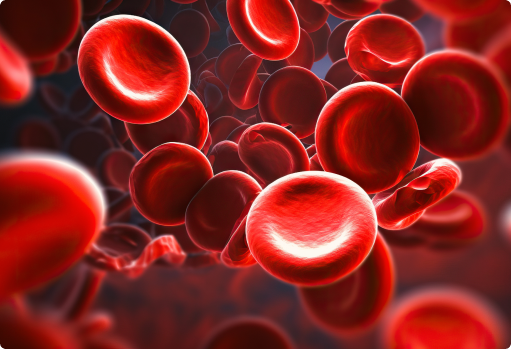

- How long you have felt fatigued (if applicable) and whether it is better or worse after sleeping or exercise
- How extreme your tiredness or fatigue feels and how much it affects your daily life

- Whether your symptoms appeared after a certain event or change in your life
- Any other symptoms, including when they started, how long they last, anything that makes them better or worse and if they affect your daily life

- Whether you have any risk factors that may make iron deficiency more likely, like pregnancy, or certain medical conditions.
- What (if any) medications you are on

- What your everyday habits are, including whether you smoke or not, how much alcohol you drink, and how much exercise you do
- Whether you have been to see another doctor or healthcare specialist or had to stay in hospital recently and, if so, what was the cause of your visit

Iron is one of the body’s essential nutrients, which is absorbed from the foods we eat. Iron is required for normal cell and organ function, as it carries oxygen around the body via haemoglobin found in red blood cells.

Iron is required for normal cell and organ function, as it carries oxygen around the body via haemoglobin found in red blood cells. Iron deficiency occurs when the amount of iron absorbed by the body is insufficient. This can be caused by a lack of iron being absorbed from food.
No, they are not. When taking an iron supplement, it is important to check the amount of elemental iron per dose. Many supplements containing iron have only small amounts of elemental iron per dose, often less than 24mg. These are often dietary supplements and are not intended for the treatment of iron deficiency.
If your iron causes constipation, try Maltofer. Maltofer contains 100mg of elemental iron per dose, in the form of iron polymaltose which provides an adequate amount of iron to treat iron deficiency when taken as directed. Be sure to check if your current iron supplement is delivering enough elemental iron for your needs.
Maltofer is used for the treatment of iron deficiency in adults and adolescents (ages 12 years and over) and it is also used for the prevention of iron deficiency in high-risk adults and adolescents. Maltofer can be used where the use of ferrous iron supplements is not tolerated or otherwise inappropriate.
Iron deficiency occurs when the body cannot absorb enough iron to replenish what is lost by the body. This can be due to a diet that doesn’t contain enough iron-rich foods or from a number of health conditions.
Iron is an important nutrient for your physical and mental health and for keeping your energy levels up. It is also needed to keep your immune system healthy, aiding your ability to fight off infections.
Active ingredients:
- Maltofer Tablets: 100mg iron as 370mg iron polymaltose
- Maltofer Syrup: 100mg iron/10mL as 370mg iron polymaltose
Other ingredients:
- Maltofer Tablets: crospovidone, hydroxypropyl cellulose, hypromellose, iron oxide red, iron oxide yellow, macrogol 6000, magnesium stearate, cellulose – microcrystalline and titanium dioxide
- Maltofer Syrup: cream flavour, ethanol, methyl hydroxybenzoate, propyl hydroxybenzoate, water-purified, sodium hydroxide, sorbitol solution (70%) non-crystallising, and sucrose.
Dosage:
You should always take Maltofer exactly as your medical practitioner or pharmacist has instructed. Consult with them if you are unsure.
For treatment of iron deficiency in adults and adolescents (aged 12 years and over), take 1-2 tablets or 10-20mL of syrup (100-200mg iron) daily, preferably with food.
For prevention of iron deficiency in high-risk adults and adolescents (aged 12 years and over), take 1 tablet or 10mL of syrup (100mg iron) daily, preferably with food.
Higher doses may be taken as directed by your medical practitioner.
If your iron causes constipation, try Maltofer. Maltofer is suitable for use in pregnancy. Maltofer has been used for over 50 years to correct iron levels in pregnant women. Clinical studies have shown that Maltofer corrects iron deficiency in pregnant women with significantly fewer gastrointestinal side effects.
Please be sure to mention to your medical practitioner or pharmacist if you are pregnant, planning to become pregnant, or are breastfeeding before you start taking Maltofer.
For more information on the importance of iron in pregnancy, please see our page on iron deficiency in pregnancy.
No, not with Maltofer. In fact, iron absorption actually increases when Maltofer is taken with food.
Ferrous supplements are generally recommended to be taken on an empty stomach since some common foods can interfere with iron absorption from ferrous salts. This is true for even very simple foods, such as tea, coffee, chocolate, and milk.
Maltofer, on the other hand, can be taken at any time with food without affecting the absorption of iron. In fact, quite the opposite—studies have demonstrated that iron absorption with Maltofer actually increases when taken with food.





